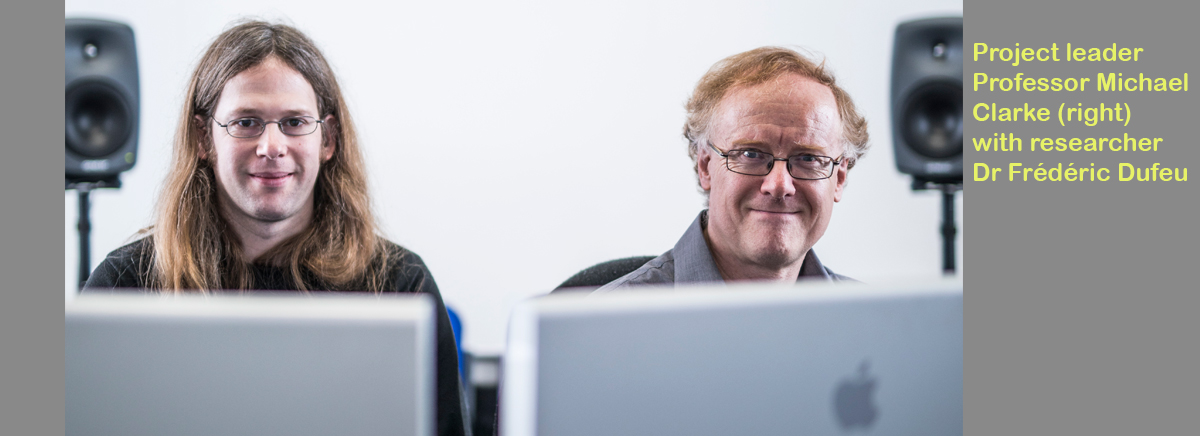The £2 million ERC project, directed by Professor Michael Clarke, has been described as “a revolution in the field of musical analysis”
A UNIVERSITY of Huddersfield professor has been awarded more than £2 million to carry out research that aims to transform the analysis of music. The conventional approach is to study it as text, using written notation. But the five-year project funded by the European Research Council will lead to the development of new interactive software that enables music to be analysed starting from the sound.
Experts who appraised the research proposal by Professor Michael Clarke described it as “ground-breaking”, “breathtakingly ambitious” and aiming for “a revolution in the field of musical analysis”. The work will be particularly relevant to the study of non-European music, folk song, contemporary music and improvised music such as jazz, which are either impossible or difficult to notate conventionally.
Story continues below...

Named Interactive Research in Music as Sound: Transforming Digital Musicology (IRiMaS), the project has been awarded an ERC Advanced Grant of 2.5 million euros. Work will begin later this year and Professor Clarke, who has a global reputation for his research in computer and electronic music, will be joined by two Research Fellows and aided by a team of leading academic experts in different fields of musicology.
Challenges to be overcome include the development of new algorithms to detect and distinguish different components of the music, such as the sound of different instruments. Ultimately, the aim is to deliver a free software package that will enable musicologists who do not have specialist expertise in computers to conduct purely aural analyses of all forms of music.
IRiMaS is a development of work that Professor Clarke has been undertaking for several years in the field of electronic music.
“Traditionally, musical analysis begins by looking at scores,” he said. “Where music is not notated but passed on by aural tradition what most people have done is to try and transcribe the music either with traditional notation or with graphic annotation. So I thought why not go directly to the sound? It is now possible to create software that allows people to investigate the sound itself, dealing directly with the audio, manipulating it and interacting with it.
“You can develop your analysis and present it to people but on a computer screen rather than a printed page and they can interact with it. For me, the next logical step was to take this approach beyond electronic and computer music, where I had worked before, into a broader repertoire.”
Therefore, IRiMaS will explore an interactive aural approach through case studies in folk music, free improvisation and contemporary art music.
Leading researchers
ERC Advanced Grants are awarded to leading researchers with a proven track record. IRiMaS is only the fifth project based in a music department in the UK since 2008. Previous successful applicants have been based at Oxford and Leeds Universities and at King’s College, London.
Dr Frédéric Dufeu , an existing University of Huddersfield collaborator of Professor Clarke’s, will be a Research Fellow on the new project, and will be joined by a newly-appointed colleague. Three research students will also participate and leading experts in different aspects of musicology will contribute to the project.
They are the University of Huddersfield’s Professor Robert Adlington, who has the Queen’s Anniversary Prize Chair in Contemporary Music; Professor Amanda Bayley, of Bath Spa University; Professor Jonathan Stock of University College Cork; and Dr Axel Roebel of IRCAM (Institute for Research and Co-ordination in Acoustics) in Paris who will contribute scientific expertise.
